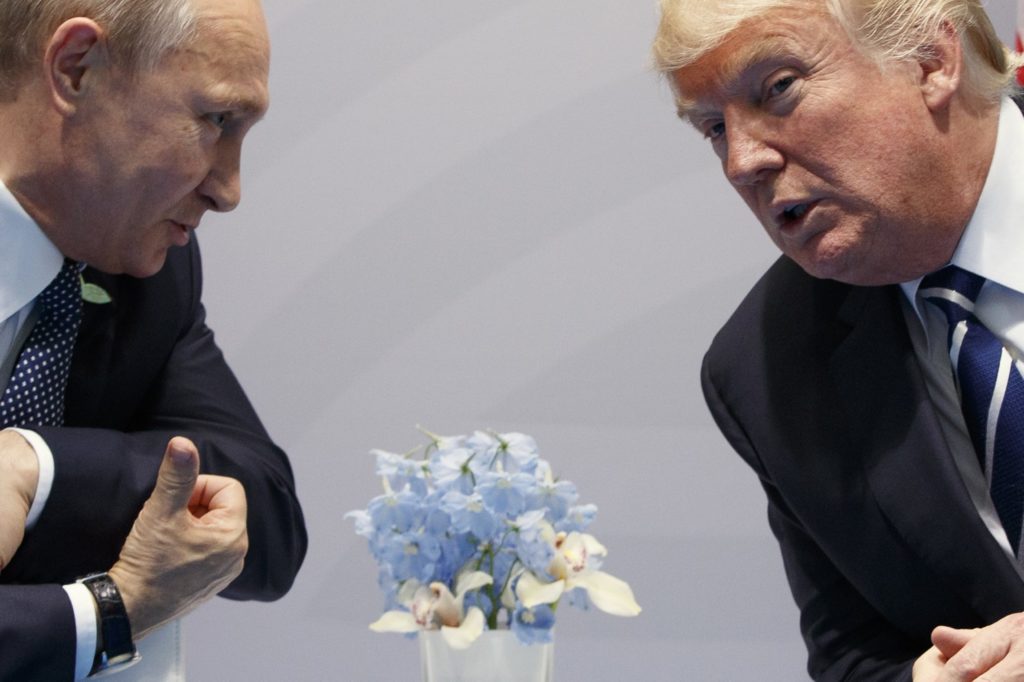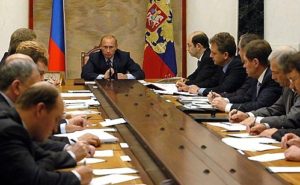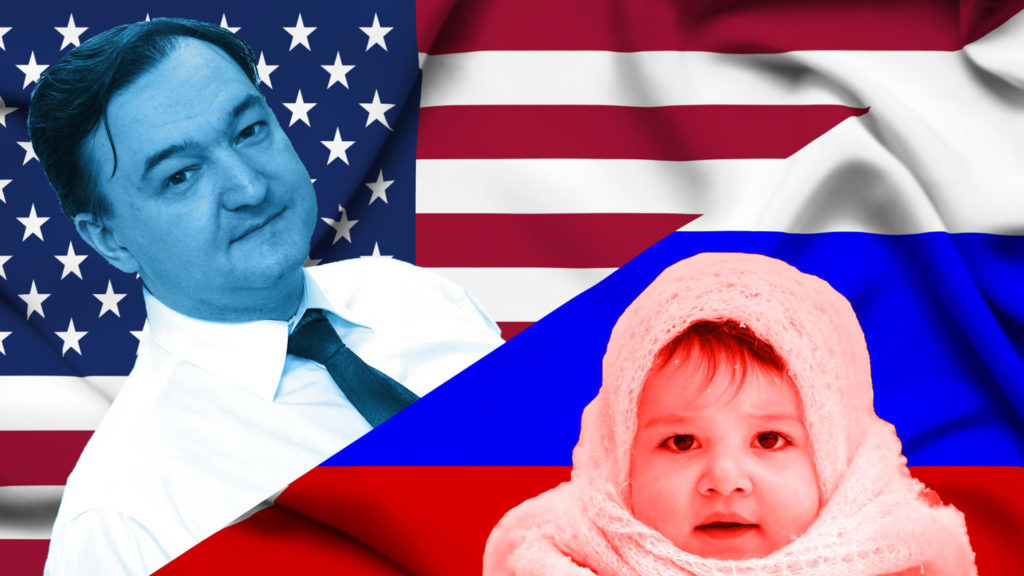Much has been made of the way Russian President Vladimir Putin meddled to get Donald Trump elected president of the United States. The prevailing view – in both Russia and the United States – was that a grateful or compromised Trump would do Putin’s bidding.
The great expectation in this respect was that Trump would lift the sanctions that have been crippling Russia’s economy for years. Former President Barack Obama imposed them in early 2014, through a series of Executive Orders, after Putin annexed Crimea and began destabilizing the rest of Ukraine.

Putin was banking on Trump wielding the kind of dictatorial powers in America he wields in Russia. And Trump did nothing to disabuse Putin of this misguided symmetry.
But I found it stupefying that so many American commentators were giving credence to this. They seemed oblivious to powers Congress and the judiciary wield as coequal branches of government. I, on the other hand, was acutely mindful of those powers.
It won’t be long before the bromance between Trump and Putin has its day of reckoning. …
Whatever the nature of their He-man courtship, that fateful day could come … when Putin realizes that his puppet strings are no match for congressional and judicial powers, which place checks and balances on presidential powers. … He’s betting he can get Trump to use those powers to ease the sanctions that are crippling Russia’s economy and cramping the lifestyles of Russian oligarchs who help him misappropriate and launder tens of billions.
(“The Issue Is Not Whether Russia Affected the Outcome of US Election,” The iPINIONS Journal, December 12, 2016)
Sure enough:
America’s ingenious system of checks and balances has so circumscribed Trump’s Putinesque impulses that all Putin has to show for his hacking is Russia suffering even worse economic sanctions and irreparable reputational damage. This pyrrhic effect is clearly not what Putin meddled for.
(“France’s Marine Le Pen, Putin’s Latest Democratic Honey Trap,” The iPINIONS Journal, May 6, 2017)
But I also found it stupefying that so many ignored the indelible and inexorable course of US foreign policy commitments, which would clearly preclude Trump appeasing Putin beyond idle flattery. I restated Putin’s looming disappointment in “Putin Blames ‘Little Green Men’ for Syrian Gas Attack – as Bloom Comes Off His Bromance with Trump,” April 12, 2017.
__________
[T]he election collusion/bromance between Putin and Trump was doomed to implode. …
Putin will finally realize that, despite his flirtation, Trump’s policies towards Russia (especially re Ukraine-related sanctions) will be no different than Obama’s.
Frankly, the institutional constancy of US foreign policy is such that Trump could not alter its trajectory even if he wanted to. Nothing telegraphs this quite like Trump defying his own election rhetoric yesterday by signing a treaty to admit Montenegro into NATO, thereby expanding rather than disbanding it for being ‘obsolete.’
In other words, Trump was bound to disappoint Putin – just as he was bound to disappoint the poor fools who thought he really would, or even could, get Mexico to pay for that wall. Which suggests that Putin is not nearly as smart as he’s reputed to be.
__________
All of which is why I wasn’t at all surprised last week when Congress defied Trump by slapping Putin in the face:
The Senate voted overwhelmingly Thursday to pass a bill increasing sanctions against Russia … establishing veto-proof majorities for the measure that also allows Congress to block President Trump from easing sanctions against Moscow. …
Lawmakers [were] worried by hints that the Trump administration might make concessions to Russia, specifically sanctions that the Kremlin has sought to have lifted. …
[T]he bill codifies existing sanctions and steps up sanctions against Moscow over Russia’s involvement in the wars in Ukraine and Syria, as well as allegations that it interfered in the 2016 US elections.
(Washington Post, July 27, 2017)
Incidentally, Trump boasted throughout his campaign that he would get Congress to rubber stamp his legislative agenda, so much so that his supporters would “get tired of winning.” Remember that? Therefore, the irony cannot be lost even on him that this sanctions bill, which he lobbied heavily to kill, is the only significant legislative achievement of his beleaguered presidency.
 In any event, a duly disappointed Putin retaliated.
In any event, a duly disappointed Putin retaliated.
Russia took its first steps on Friday to retaliate against proposed American sanctions for Moscow’s suspected meddling in the 2016 election, seizing two American diplomatic properties in Russia and ordering the United States Embassy to reduce staff by September.
The moves, which had been threatened for weeks, came a day after the United States Senate approved a measure to expand economic sanctions against Russia, as well as against Iran and North Korea. The White House announced late Friday that President Trump would sign the bill.
(New York Times, July 28, 2017)
Except that this retaliation actually betrayed Putin’s weakness. Again, US sanctions are not just crippling Russia’s economy; they’re cramping the jet-set lifestyle of the oligarchs he depends on to protect and sustain his kleptocracy.
Indeed, it speaks volumes that the richest Russians, including Putin himself, have more money in American banks than Russian ones. And US officials can make sanctions more targeted by requiring them to account for their “unexplained wealth.” For this would prove every bit as incriminating as requiring drug lords to account for theirs. This is why Putin and his oligarchs are so susceptible to US sanctions.
Yet, in the face of these US sanctions (actual and potential), Putin merely kicked hundreds of consular staffers out of Russia — many of whom are probably all too happy to leave. In fact, the only people who will be adversely affected are the Russians lining up every day for these staffers to process visas for them to visit the United States – many of whom will overstay their visas … indefinitely.
Weak!
What’s more, the way he retaliated for the first round of US sanctions in 2012 only reinforces this weakness. For he merely banned Americans from adopting helpless Russian babies.

[T]he adoption ban was drafted in response to the Magnitsky Act, a law signed by President Obama this month that will bar Russian citizens accused of violating human rights from traveling to the United States and from owning real estate or other assets there.
(New York Times, December 27, 2012)
This is why I fear the day of reckoning is nigh, when Putin will have to play the only card he has to justify the strongman reputation he has so carefully cultivated. That, alas, is the military card. And it would only make sense for him to play it somewhere that compels the US to retaliate … militarily. Granted, reports are that Putin might retaliate for more targeted sanctions by withdrawing Russian support for US-led efforts to denuclearize the Korean Peninsula and broker peace in the Middle East. But this is patently absurd. After all, Russia is doing more to destabilize those regions than it’s doing to foment chaos in the United States.
As it happens, Trump might be unwittingly encouraging Putin to take desperate military action to save face. Not least because he must seem to Putin (and other world leaders) like a clueless, hapless idiot tweeting his presidency away. Trump reinforced this impression just last week by tweeting to no avail to get
- China to stop North Korea from launching ballistic missiles;
- the US military to ban transgender troops; and
- Congress to repeal and replace Obamacare.
Weak!
Meanwhile, Russia is doubling down on its meddling in last year’s election by retaliating after being duly punished for doing so. Yet, despite this, Trump is being conspicuous in his unwillingness to tweet a single condemnatory character.
Incriminating!
Related commentaries:
The issue…
Putin blames…
Le Pen, Putin’s latest…